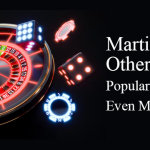Roulette is a classic casino game that combines chance and strategy, captivating millions of players worldwide. While the spin of the wheel is random, understanding the underlying probabilities can significantly enhance your approach. In this blog, we’ll explore how probability analysis can be used to improve your roulette strategy, offering insights into the game’s mechanics and practical Roulette tips to maximise your chances of success.
Understanding the Basics of Roulette
Roulette is wagered on where a ball will land on a spinning wheel with numbered holes. There are two dominant types of roulette: European and American. European roulette has 37 pockets (numbers 1 to 36 and one zero), while American roulette has a second double zero, hence 38 pockets. This extra pocket raises the house edge, so European roulette is more favourable to players.
Roulette bets are also grouped as inside bets, which wager on specific numbers or small ranges of numbers, and outside bets, which wager on bigger groups such as red or black, and high or low numbers. There are odds and payouts for all types of bets, i.e., it is necessary to know the probability associated with each.
The Role of Probability in Roulette
Probability is mathematics concerning how probable an event is to occur or take place. Each spin in roulette is independent and thus what a spin yields will have no bearing on the subsequent one. Although it does not actually rely on another, you will place better-informed wagers if you observe odds. For instance, in European roulette, the odds of winning on red or black are approximately 48.6% because there are 18 possible ways to win out of 37.
You are able to calculate the expected value of each wager when you know this. The expected value is an estimate of the average outcome you can expect over the long term. Although a bet might be high paying, if winning has a very low probability, its expected value cannot be warranted as a risk. With the aid of probability analysis, you will be able to determine which bets offer the optimal balance of reward versus risk.
Interpreting Betting Options with Probability
There is some probability of every roulette betting option being a winner. In the European roulette game, for instance, a bet on one number has a 2.7% chance of being a winner (1 out of 37), but it pays 35 to 1. But a bet on black or red offers you a virtually 50% chance to win but at even money only. By analysing odds and returns, you can come up with a plan that aligns with your playing style and level of risk.
One of the Roulette tips is to spread your bets across many options in an effort to equal out the vast risk of single number wagers with the less risky though smaller paybacks of even-money wagers. Diversification by probability analysis allows you to limit the inevitable variance of outcomes without eliminating you from the running.

Common Misconceptions About Roulette Odds
One of the most frequent gambler’s fallacies is that “gambler’s fallacy” in recent history will affect future results. As an example, if red has been the outcome of several successive spins, some believe black is “due” to occur next. However, each spin is an independent event, and previous outcomes have no influence on the probabilities of future spins. A recognition of this can prevent individuals from silly bets based on a fallacy.
Another fallacy is to overestimate the chances of winning with some betting systems, like the Martingale system, doubling your bet after each loss. Although one of these Roulette tips seems to provide a means of eventually recovering losses, it does not change the underlying odds and can result in huge losses when a long sequence of losing results is experienced. Rather, incorporating probability analysis into your strategy provides for more realistic risk management.
Building a Probability-Based Roulette Strategy
To build a probability-based system, start with clearly set objectives and boundaries for every session of gaming. Set the sum that you will spend beforehand and stick to it. The reason is that no matter how great the probability analysis is, even superior probability analysis can’t surmount the aspect of chance.
One balanced approach is to bet a mix of inside and outside bets. You can place some portion of your bankroll on even-money bets that have a pretty good shot at winning and another portion on more dangerous, high-reward bets on individual numbers or small groups. By mixing your bets, you reduce the impact of one large loss and make your overall approach more maintainable.
Applying probability analysis techniques, either within statistical software or even simple probability charts, to calculate the expected value of a bunch of different bets is possible. In the long term, you can adapt Roulette tips based on what kinds of bets have paid off well under the same conditions previously. This is the sign of an enlightened roulette strategy.
Advanced Techniques in Probability Analysis
For those who want to take strategy to the next level, advanced probability techniques will provide you with more depth. Simulation models, for instance, enable you to forecast the outcome of various betting patterns. Simulating hundreds of thousands of spins, you can search for patterns and observe what sets of bets work best in the long run.
Another approach is to examine the variance and standard deviation of different types of bets. Examining these Roulette tips can inform you regarding how much spread you can anticipate in your wins and losses so that you can manage your bankroll better. While these are a little more mathematically advanced techniques, they can be well worth it for serious players who wish to maximise their play.
Practical Roulette Tips for Applying Your Strategy
- Stay Informed: Monitor your betting history periodically and adjust your strategy based on real results. Use probability analysis to identify which bets win and lose.
- Practice Discipline: Set limits on losses and winnings. Don’t chase losses by keeping to your predetermined budget and strategy.
- Keep Records: Keep a record of your game sessions, including the bets placed, the outcomes, and adjustments to your strategy. This will enable you to enhance your strategy in the long run.
- Manage Expectations: Remember that roulette is a game of chance. Even the best strategy can result in losses due to inherent randomness. Attempt to make decisions that maximise your long-run performance rather than expecting immediate, surefire gains.
- Make Use of Technology: You might find it helpful to use computer programs or applications that can assist you in breaking down odds and analysing test results prior to making bets. Such computer programs are helpful in providing insight and facilitating Roulette tips.
Final Thoughts
Improving your roulette strategy through probability study is a bit more than learning the odds-it’s using the information to make intelligent, controlled decisions. Breaking down betting options, identifying myths that have grown organically over the years, and introducing innovative Roulette tips all help in a better strategy that yields the highest returns while still controlling risk.
Keep in mind that no plan can outsmart the built-in randomness of roulette, but a well-reasoned, probability-driven strategy can guide you to make more intelligent bets and enjoy a better overall gaming experience. Go with the math, remain disciplined, and constantly tinker with your strategy to maximise every spin at the roulette table. With practice and careful observation, you can rise to a higher game and have a more fulfilling roulette experience, making the factor of chance more predictable and controllable a part of your gameplay.Want to get more useful information related to online betting? Just visit us at BetPost today and get several useful information related to online betting!






